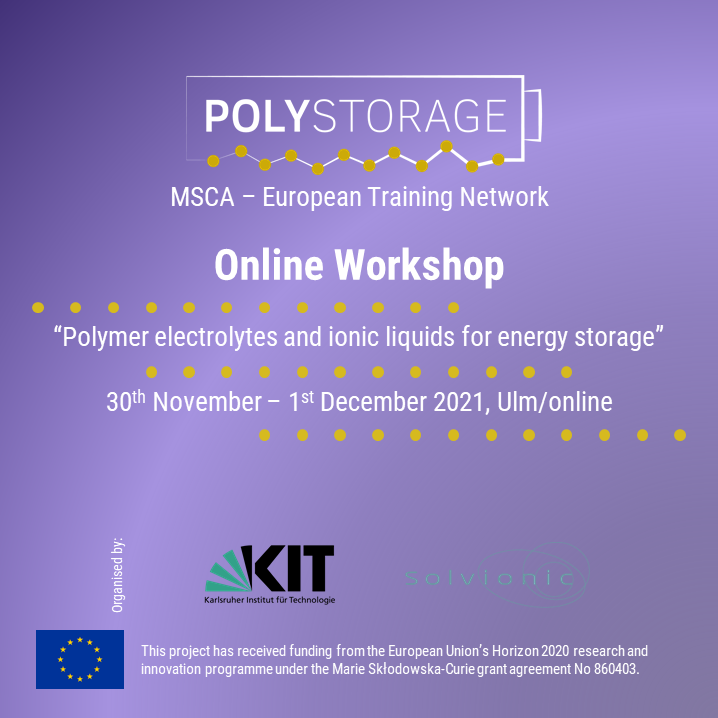The 3rd POLYSTORAGE workshop “Polymer electrolytes and ionic liquids for energy storage” organized by Helmholtz Institute Ulm (HIU)/Karlsruhe Institute of Technology (KIT) together with Solvionic will take place as hybrid event from 30th November – 1st December 2021. It addresses the understanding of properties of Ionic Liquid-containing polymer electrolytes and the role of the Ionic Liquids in the membrane properties. High-profile external experts and POLYSTORAGE members will provide current insights into this active research field. POLYSTORAGE members are invited to attend on-site (in Ulm) or online.
The online workshop is open and free for everyone upon registration.
If you are interested in participating please register till 29th November 2021 using the link (public registration) below.
The link for the online meeting will be send out one day before the meeting to all registered participants.
On 2nd December 2021 the internal POLYSTORAGE progress meeting will be held also in a hybrid format.
Important: COVID-19 hygiene concept for HIU events
- Admission control using the 3G rule (all on-site participants must be either vaccinated, recovered, or tested). Testing must not be older than 24 hours in the case of rapid antigen tests, and a maximum of 48 hours in the case of PCR tests
- Admission only with contact details recorded
- Adherence to the minimum distance of 1.5m between seats
- Maximum number of persons in Seminar room: 40 persons (without tables)
- Mask obligation in closed rooms (medical mask), if the minimum distance cannot be maintained
- Masks must be worn outdoors if a permanent distance of 1.5 m cannot be maintained
- Mask obligation does not apply when food is consumed
Speakers
Michel Armand (CIC energiGUNE)
Prof. Dr. Michel Armand earned his Ph.D. in 1978. He was Director for Research at CNRS, France since 1989 and Professor at U. Montreal (1995−2004). He has pioneered the use of intercalation electrodes (1972), introduced polymer electrolytes (1978), new salts based on delocalized anions, (1986), organic electrode materials (1996) and the carbon coating for LiFePO4. He joined CIC Energigune in 2013, and present activities include new solvating polymers for lithium and sodium, and new salts; Michel Armand has > 440 publications, a H factor of 68; his work has been quoted > 45000 times.

Andrea Mele (Politecnico di Milano)
Andrea Mele is professor of Chemistry at Politecnico di Milano. His scientific background is largely focused on the study of intermolecular interactions, self-aggregation phenomena, solvation and transport properties of molecular solutes. The research is mainly carried out by NMR spectroscopy, with synergic collaborations with specialists in Raman spectroscopy (Elettra Sincrotrone Trieste), X-ray scattering (CNR Rome) and MD (ENS – Lyon). He is currently collaborating with Gianni Appetecchi (ENEA Rome) and with the group of Stefano Passerini in projects dealing with applications of aprotic and protic ILs for energy storage.

Daniel Brandell (Uppsala University)
Daniel Brandell received his PhD in 2005 at Uppsala University, Sweden, on a thesis comprising Molecular Dynamics studies of polymer electrolytes. After post-doctoral studies in Estonia and the USA, he returned to Uppsala. In 2016, he was appointed Professor in Materials Chemistry. Since 2020, he coordinates the research centre “Batteries Sweden”. In his research, he combines computational chemistry spanning DFT calculations, MD simulations and FEM electrochemical modelling with experimental activities, with a clear focus on Li-ion batteries and other ‘future’ battery chemistries such as Na-ion batteries, solid-state systems, Li-Sulfur, Organic batteries, etc. He holds several research grants, including an ERC consolidator grant from 2017 on polymer electrolytes, and has many collaboration projects with industry.
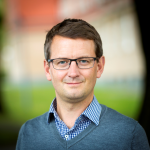
Gianni Appetecchi (ENEA)
Giovanni Battista Appetecchi is researcher at ENEA (Italian National Agency for New Technologies, Energy and the Sustainable Economic Development). He has been working for more than 29 years on basic and applied research focused on the development of materials/components for lithium/sodium batteries. Main topics are: polymer/gel electrolytes; ionic liquids, composite electrodes. He is author/co-author of 171 publications in “peer reviewed” scientific journals (H-Index = 55, 10,911 citations), 7 book chapters, 176 communications/lectures and 3 Italian patents. He is currently Guest Editor of Membranes and Advisor Editor of Energy Materials.

Claudio Gerbaldi (Politecnico di Torino)
Claudio Gerbaldi got his PhD in Material Science and Technology in 2006 at the Politecnico di Torino, where he is now Full Professor, Chair of Chemistry for Applied Technologies. He leads the Group for Applied Materials and Electrochemistry, developing innovative electrochemical energy storage/conversion systems and related materials, with strong collaboration with academia, industry, and EU. He is co-author of > 155 research articles in ISI journals (h-index 57). He is the next President of GISEL, the Italian Group for Electrochemical Energy Storage. Among others, he received the International “Roberto Piontelli” Award by the President of Italian Republic for outstanding contributions in the field of electrochemistry for energy-related applications.

Maria Forsyth (Deakin University)
Professor Maria Forsyth “FAA” (Fellow Australian Academy of Sciences) an Alfred Deakin Professorial Fellow at Deakin University and an Ikerbasque Visiting Professorial Fellow at University of the Basque Country. Professor Forsyth has worked at the forefront of energy materials research since her Fulbright Research Fellowship in 1990 and has consistently made breakthrough discoveries, including in polymer electrolytes, ionic liquids and organic plastic crystals. Her research has focused on understanding the phenomenon of charge transport in these materials and at metal/electrolyte interfaces present in all electrochemical applications. This extensive body of work provides the basis for understanding the behaviour of these materials and thus, provides clarity on how to overcome their performance limitations and design and develop improved applications.

Guanglei Cui (Chinese Academy of Sciences)
Professor Guanglei Cui received his Ph.D. degree from the Institute of Chemistry, CAS. He then did postdoctoral research at Max-Planck-Institute for Polymer Research and Max-Planck-Institute for Solid State Research before joining Qingdao Institute of Bioenergy and Bioprocess Technology (QIBEBT), CAS as full professor in 2009. He is Chairman of Academic Committee of QIBEBT, CAS. He is also Director of Qingdao Energy Storage Research Institute. His research topics include sustainable energy-storage materials, solid-state batteries. He has published more 300 papers on peer-reviewed journals of Angew. Chem. Int. Ed., J. Am. Chem. Soc., Adv. Mater., et al.
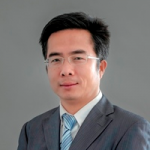
Yunfeng Zhang (China University of Geosciences)
Yunfeng Zhang received his Ph.D degree in Chemistry from China University of Geosciences (Wuhan) under the direction of Prof. Hansong Cheng in 2013. Meanwhile he has been research assistant in National University of Singapore from Sep. 2011 to Sep. 2013. After that, he continued to work as research fellow until Nov. 2014. He is current an Associate Professor at the China University of Geosciences. He has extensive experience in the design and preparation of novel materials for application in lithium based batteries, PEM fuel cell and hydrogen storage.
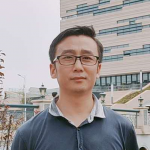
Maider Zarrabeitia (Helmholtz Institute Ulm)
Maider Zarrabeitia joined the group of Prof. Stefano Passerini at Helmholtz-Institute Ulm (HIU) in 2018 as visitor researcher. Currently she is sodium-ion battery group leader at HIU focusing on electrode materials and electrolytes for sodium-ion batteries, as well as, understanding the electrode-electrolyte interphases for several battery technologies such as Li-ion, Li-metal and Na-ion. Maider received her Ph.D. in Materials Science and Technology in 2016 from the University of Basque Country (UPV/EHU, Spain) while being researcher of CIC energiGUNE in the group of Dr. Miguel Ángel Muñoz, including two research stages at the University of Camerino (Italy).

Zhen Chen (Helmholtz Institute Ulm)
Zhen Chen is currently working as scientist at the Helmholtz Institute Ulm (HIU), Karlsruhe Institute of Technology (KIT) in Germany. She received her B.S. degree at Southeast University (SEU) in China in 2014, and Ph.D. degree at Nanyang Technological University (NTU) in Singapore in 2018. Her research mainly focuses on the synthesis and modification of cathode materials for lithium-ion batteries; the development of solid polymer electrolytes and polymer-ceramic hybrid electrolytes, and the modification of lithium surface for lithium metal batteries.
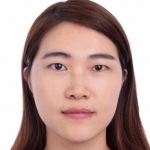
Pierre-Alexandre Martin (Solvionic)
Dr. Pierre-Alexandre Martin carried out a Master’s degree in material chemistry. He pursued his studies through a co-supervised PhD obtained in 2018, between the CEMHTI Laboratory in France with Pr. Mickaël Deschamps and Deakin university in Australia with Pr. Maria Forsyth and Dr. Luke O’Dell on the studies of interactions between ions in ionic liquids electrolytes by nuclear magnetic resonance. Followed by a post-doctoral position at Chalmers University under the supervision of Pr. Patrik Johansson, on the study of Calcium-based electrolytes, he finally entered SOLVIONIC company on November 2020 as a member of the electrochemical energy storage R&D team.



